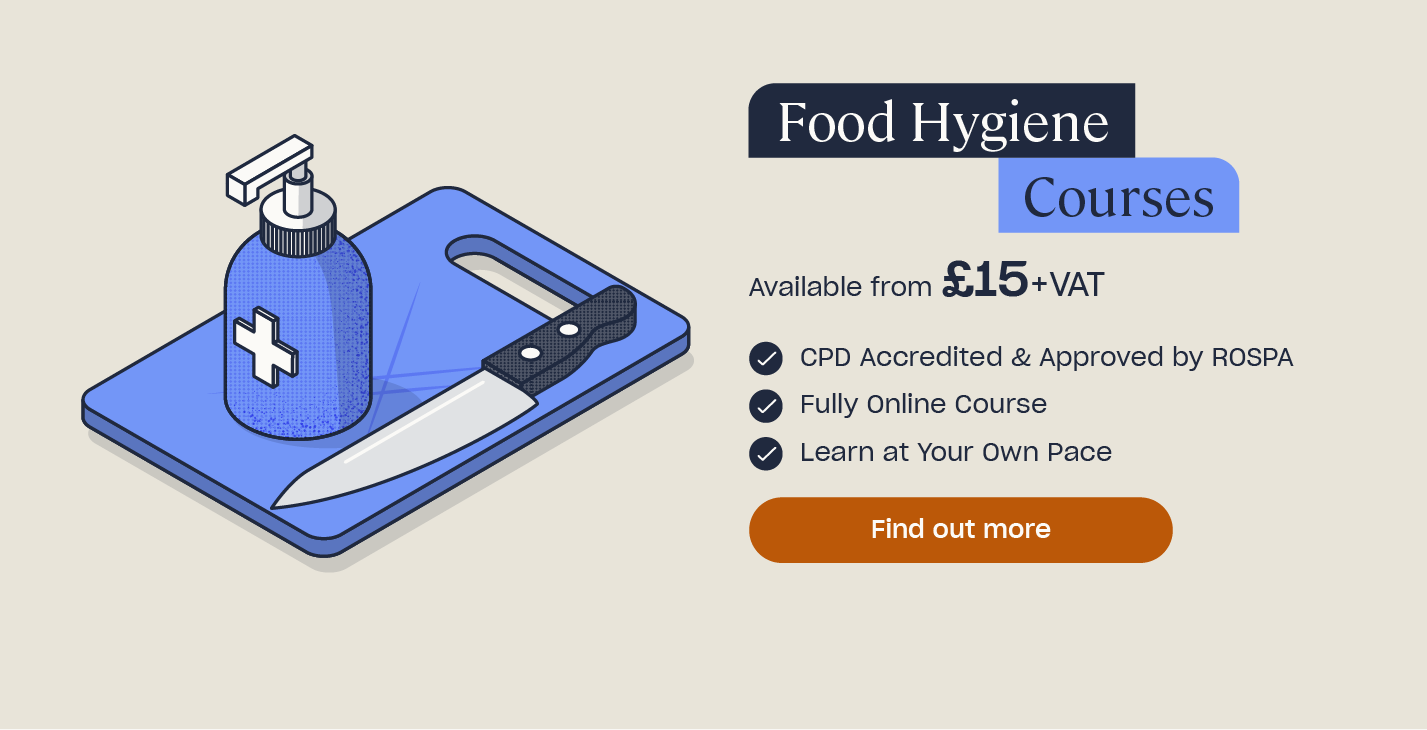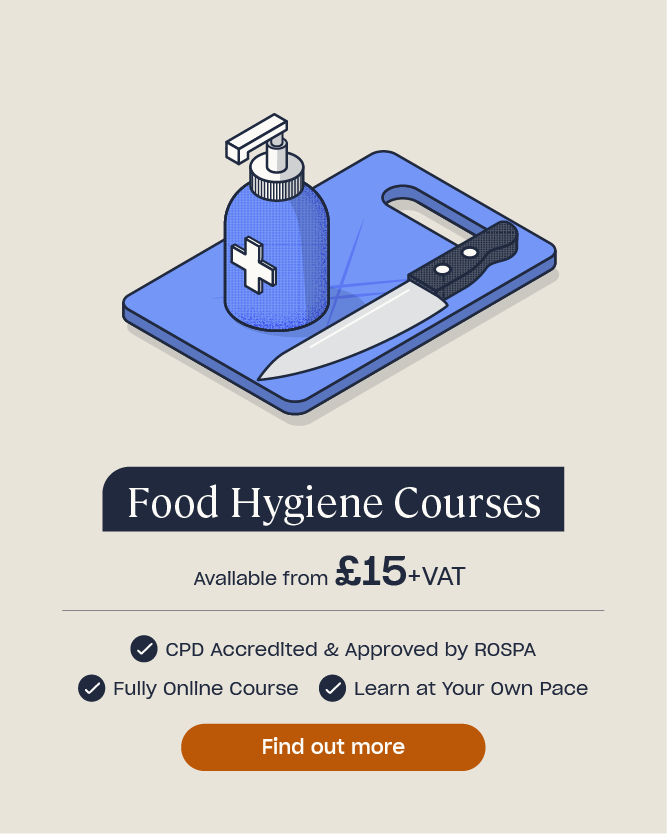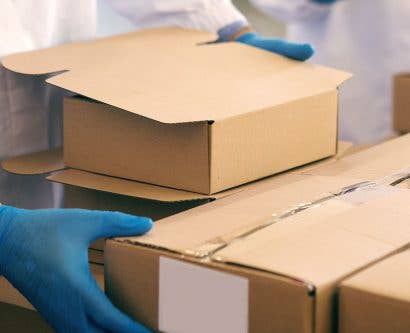How to Choose a Reputable Food Supplier
It is common knowledge that the better the ingredients used, the better the finished product will be. Where the quality, and indeed, safety, of your food relies on an excellent food supply chain, finding a reputable food supplier can be a daunting task.
Many businesses will prioritise the bottom line, and understandably, obtaining a good price is important, but maintaining a good relationship with your supplier can be cost effective too. So how then do you ensure that the business supplying you is paying the same level of care and diligence to their goods, their role in the supply chain, and in their relationship with you, as you are?
There are many key factors that you need to consider when choosing the right supplier, such as how to guarantee the quality, safety and value of the food, as well as understanding what processes they have in place for if things go wrong. This article will include what a reputable food supplier is and how to find one. We will also discuss what factors to consider when choosing your suppliers, give an overview of the supplier selection process, and explain how you can establish a good relationship with your chosen reputable food supplier.
What is a Reputable Supplier?
A reputable supplier is a business that supplies you with ingredients (raw or processed), finished products, goods or services. Within the food supply chain, a reputable food supplier is one who adheres to high levels of food hygiene and safety standards at all times, whilst continually improving their processes and sharing information with you, the purchaser.
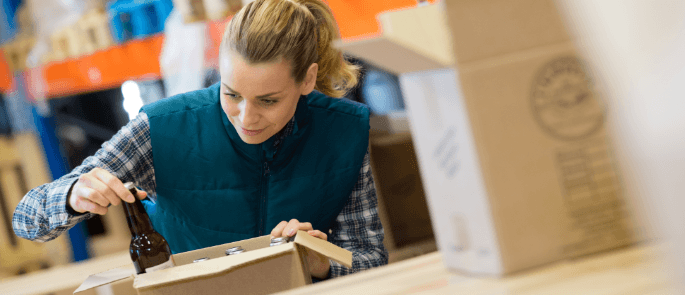
Most people in the food and drink industry will have come across the term ‘reputable supplier’ when setting up their food safety management system. Part of your due diligence for a food safety management system requires that you have carried out documented checks on your suppliers to ensure that the food you obtain is safe to use in your business. Doing your due diligence and having a good relationship with your suppliers is essential for the transfer of information that is necessary to keep your product, your customers, and your business, safe.
The task of deciding upon a supplier usually comes from the person responsible for sourcing the required product. This can be the business owner or manager, the purchasing or procurement departments, the chef, or anyone else who can recommend a good supplier! The key to making a good decision is to do your research thoroughly.
How to Find a Good Supplier
Finding a good supplier can be a difficult task, but chances are you already know of some, or you know someone who can give you some recommendations. If you are completely new to this, don’t be afraid to call up potential suppliers and explain what you’re looking for. Some other good places to seek advice are:
- Networking events – these are a great place to meet potential suppliers. Many industry bodies, and even your local council, will organise events throughout the year where you can attend and make good connections.
- Specific industry experts – there are many consultancy businesses that specialise in particular products and markets and their knowledge could be invaluable to your business.
Any business that is involved in the supply of food should be committed to food safety, and that includes assessing the threats and vulnerabilities in the whole supply chain. As such, when looking to discover if the supplier you have in mind is reputable, a good place to start is with some basic research. A reputable supplier should have a history of supplying acceptable products, and value-added service. Your research can help you assess this – consider asking how long have they been in business, what certification have they gained, what customer reviews and partnerships do they have, are they financially stable, and what are their past audit results?
A reputable supplier will meet industry standards and regulatory requirements, and should supply this information upon request. You should also look for a company mission statement, which should be on their website, and check to see if the business demonstrates a commitment to food safety.
Choosing the right supplier for your business is crucial when it comes to satisfying your customers and consistently providing them with the best products and services. Once you have completed your initial research, you need to drill down deeper into the company. We will look at what further factors to consider in the next section of the article.

What Factors Should be Considered When Choosing Suppliers?
It is important to use reputable suppliers that you can trust to handle and supply food safely. This means trusting them to provide products that match standards, with accurate labelling and traceable documentation, that have been handled safely throughout the supply chain, that are of an acceptable quality and price, and that arrive on time and at the agreed price. A reputable supplier will also have a robust procedure in place in the event of a product recall or withdrawal, and be consistently horizon scanning and working on adapting to any upcoming issues. All of this information should be shared with you. As you can see, there is quite a lot of work that goes into sourcing a reputable supplier!
There’s no doubt that the selection process can be time-consuming, so it can help to familiarise yourself with the qualities of a reputable supplier, as well as the key factors you should be looking to consider. To help you establish a good relationship with your supplier, be sure to ask them the following key questions:
- Are they registered with the local authority?
In the UK, a reputable supplier will be registered with their local authority. - Do they demonstrate regulatory compliance?
Everyone involved in a food supply chain must provide a complete picture of a product’s history that’s consistent and comprehensive. Traceability also works as a risk management tool that food businesses should use to react to a food safety issue. Ensuring that you can trace products back to the source is essential for the efficient and accurate recall and withdrawal of any unsafe foods. - Do they have any certification or quality assurance?
Evidence of external certification, auditing to external standards, or of quality assurance, is a good indication of a reputable supplier. Remember you can cross reference their claims with the certification provider to be doubly sure. - Are they financially stable?
A supplier that goes out of business at short notice can leave you really stuck, or scurrying around to source product from elsewhere, often at inflated prices. - Do they provide fully referenced invoices or receipts?
A business which is transparent with invoices and receipts is another good sign of a reputable supplier as they can be traced through the banking system, making it easier for you to keep track of your own accounts. - What is their customer service like?
This will be important to you when dealing with the supplier in future. Make sure their customer service works to your needs, for example if you run a 24-hour manufacturing line that could require a call to the supplier at any time of day or night, work this into your research. A deeper understanding of the contract language about their return policy should be uncovered as well. - How does the supplier store, transport and/or pack their goods?
You can ask for evidence of safe and hygienic operations. They should follow a one step forwards and one step backwards approach, which you can learn more about in our article series on food fraud. - Does the supplier provide accurate allergen information?
Accurate allergen information is essential in keeping your customers safe, and any reputable supplier will understand this and should be able to provide allergen information for every product they sell. A supplier that has taken the time to provide easily accessible product specifications demonstrates a willingness to be as helpful as possible to win and maintain your business.
You can also ask your other trusted suppliers for their recommendations, and look to see which trusted businesses have partnered with your potential supplier. A declaration of trust from a well known business is an excellent green flag that your supplier is meeting rigorous standards.
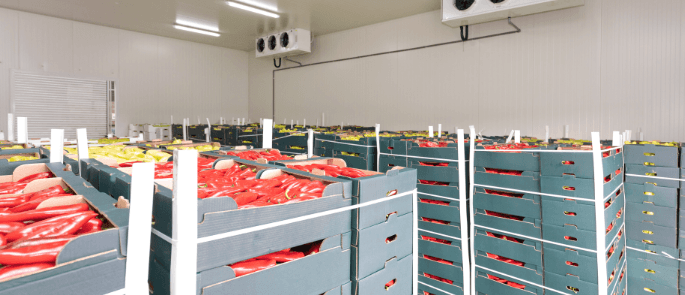
Remember, you are required by law to take reasonable precautions and do all that is needed to protect your customers, and therefore you must choose your suppliers carefully. Alongside considering logistics and that goods are handled safely, you should also think about the supplier’s equipment and packaging, and what steps are in place to mitigate the risk of unsafe foods being delivered to your business. When performing checks on your supplier, considering their equipment is equally important in the process.
Any suppliers of cold food items must legally transport the goods under refrigeration to maintain the ‘cold chain’. As such, any delivery truck storage areas should operate below 8 °C – though it is best practice to store chilled foods below 5 °C. You can ask to see documentation that their cold store delivery trucks are regularly checked and operate at the correct temperature to ensure they are maintaining the cold chain.
What should I document for due diligence?
As you are assessing your suppliers’ reputability, you will naturally compile ‘evidence’ of each suppliers’ procedures. Each of the factors and key questions mentioned above will give you valuable insight as to whether the supplier is someone you want to work with or not. It is recommended that you keep this information on file for each supplier you assess, along with notes of your thoughts of their suitability to your business. This will demonstrate evidence of your due diligence, should you ever need to provide it.
As part of your food safety management system, you should also have a record of all the suppliers you use, their contact details, and the terms of your agreement. Additionally, it is good practice to regularly run an audit on your suppliers and your arrangement with them to ensure that it remains fit for purpose. You should regularly check that they are upholding standards, and that new procedures are documented and effective. Any information discovered through horizon scanning should also be shared as well as new processes, such as increased cyber security protocols.
What is the Supplier Selection Process?
Now that you have a better understanding of what factors to consider when looking for a reputable supplier, that will help to get the ball rolling on your journey to finding the right reputable supplier for you and your business. Once you have identified your reputable supplier and carried out your checks, the next step is beginning the supplier selection process.
The supplier selection process is the procedure that companies go through to identify, evaluate, and form contracts with suppliers. It can be quite time consuming, and take up a large amount of resources – both financial and time. Taking precautions here can help you not fall victim to food fraud. Yet once you have done the leg work and have a contract in place that all parties are happy with, the working relationship can flourish and the long term benefits will play a crucial role for the success of any organisation.

Key criteria to first consider in your selection process includes understanding supplier characteristics. What are the important strategic alignment factors that you value? Outlining your values at the start of the process will help you get on the same page and identify any potential issues. Consider also if there are any constraints to the process – such as management directives, government regulations, contracts already in place and other commitments. Think about where the supplier is based as that may have an impact on your arrangement.
Once you are happy your reputable supplier is a good fit for your company, and vice versa, it is down to negotiating your terms and creating a contract that you are both happy with. It is important to get this stage right so that when you start working together you can focus on the future and on progressing and maintaining a good relationship.
We hope you have found this article useful and have a better understanding of what a reputable supplier is and how to find one. Choosing the right supplier for your business is crucial when it comes to producing a safe product and mitigating risk in your business. A supplier relationship should be nurtured so that you can both share information that will be valuable to your businesses.
Further Resources:
- Food Hygiene Training
- Level 2 TACCP Training
- Food Supply Chain: Importance & Management Strategies
- Starting a Food Business From Home
- Who is Responsible for the Traceability of Food?
- What You Need to Know About the SALSA Standards


